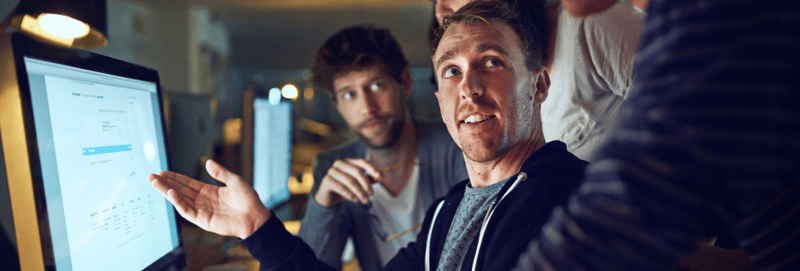
What are Canonical Tags and When Should You Use Them?
April 17, 2018
Canonical tags seem to stir up a lot of confusion for the not-so-technical marketers. What do canonical tags accomplish? When should you use them? Why does Moz Pro have an entire section dedicated to missing canonical tags and how do we fix them? Hopefully, this article helps clear things up!
What Are Canonical Tags?
A canonical tag tells search engines what page it should display in search results. This means that if you have two pages with duplicate content, adding a canonical tag will tell the search engine which is the master copy and what page is the clone/duplicate. To put it simply, let’s say you have page A and page B, which has duplicate or very similar content. You want page A to be the master page, and you want to let search engines know that page B is the copy and shouldn’t appear in search results so that all of the traffic and SEO juice will be pushed to page A. Adding a canonical tag to page B will accomplish this.
When Should You Use Canonical Tags?
This is where this topic seems to become a little gray. A lot of SEO experts have their own views and opinions on this, and it’s not quite clear what strategy is 100 percent without a doubt the best to take, but to simplify the answer, I’ve compiled the most common scenarios where the use of a canonical tag could be beneficial to your site and overall SEO.
- Duplicate content: This is the one that everyone agrees upon. You should be adding a canonical tag wherever you have duplicate content on your site.
- Similar content: Let’s say you have an e-commerce store with products that are very similar but may have slight differences between them. In this case, most SEO experts say you should use canonical tags. This will help Google and other search engines focus on the main product page, giving full search engine value to the main product page and possibly helping you rank higher in SERPs, while eliminating the confusion for the search engine as to what page it should show and rank.
- URL parameters: This often gets overlooked, but I think it’s really important to include and pay attention to. URL parameters are created for tracking purposes so that you can easily track campaign performance and attribute URLs to certain objectives. The problem is each parameter created for the main URL tells search engines that these are duplicate versions of the same page, and can end up hurting your SEO. Recognizing the main page as the canonical page will help combat this issue.
- Self-referential: This has been a highly debated scenario up until recently when Google announced that we should always use self-referencing canonicals. This means that we should be adding a canonical tag to every page, regardless of whether they have a known duplicate or not. If you have page A, add a canonical tag to point to page A. This also helps when there are multiple ways to reach your URL. For example, let’s say you have www.abc.com. Someone could also reach your site by https://abc.com, http://abc.com, and so on. Adding a canonical tag to these will let search engines know this is just one page, and this is the one you should index and show in search results.
How Do You Add Canonical Tags?
There are several ways to add canonical tags and a lot of that will depend on what you’re using to host your site and ultimately what you or your development team deems best. Check out this article where Google outlines the many ways you can specify the canonical page. And if you’re using HubSpot, you’re in extra luck. HubSpot has made it super easy for you to automatically add self-referencing canonical URLs for all blog posts, landing pages, and website pages, taking pretty much all of the guesswork out.
Hopefully, this helps clear some things up around the topic of canonical tags. What’s your canonical tag strategy? Have you seen large SEO benefits from a dialed-in canonical tagging process? I’d love to hear from you!
Eye for Ebony%20(1).jpg?width=120&height=120&name=Fetchu_Mallory-008%20(1)%20(1).jpg)
About the author
Mallory Fetchu was formerly a Marketing Consultant at SmartBug with several years of experience creating and executing a full marketing strategy for a B2B packaging company. She is thrilled to take her knowledge of inbound marketing and help companies succeed online! Read more articles by Mallory Fetchu.











